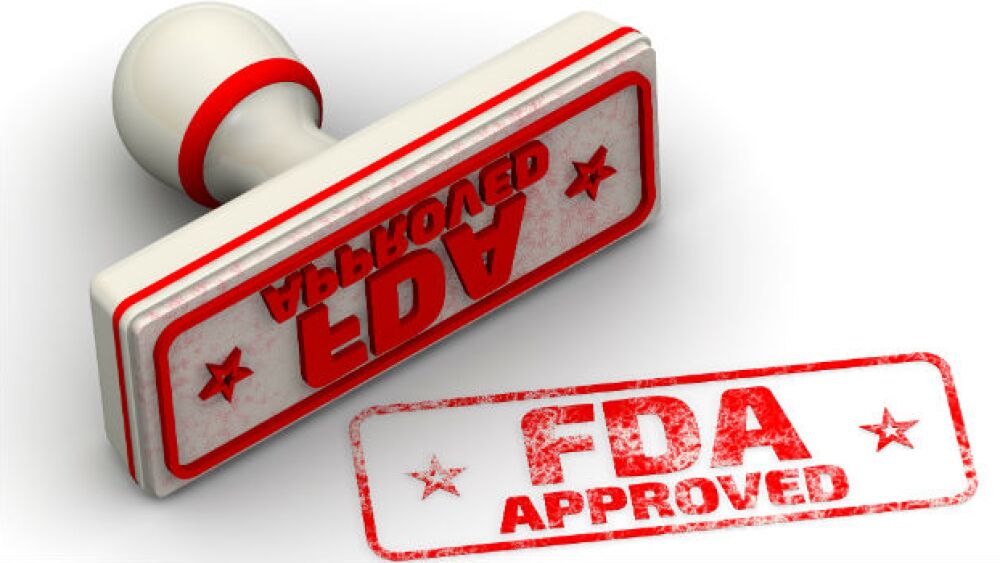The U.S. Food and Drug Administration (FDA) approved Shire’s Takhzyro (lanadelumab-flyo) injection to prevent attacks of hereditary angioedema (HAE) in people 12 years of age and older. The drug was accepted while under priority review.
The U.S. Food and Drug Administration (FDA) approved Shire’s Takhzyro (lanadelumab-flyo) injection to prevent attacks of hereditary angioedema (HAE) in people 12 years of age and older. The drug was accepted while under priority review. It also had Orphan Drug status and Breakthrough Therapy designation.
HAE is a rare, genetic disease that causes recurring cases of swelling (edema) in various parts of the body. It is potentially life-threatening. It affects about 1 in 50,000 people.
Takhzyro is a monoclonal antibody that targets inhibition of plasma kallikrein. This enzyme is uncontrolled in patients with HAE. It is given via subcutaneous injection. The majority of patients were able to self-administer the injection in less than one minute.
“HAE attacks are painful, debilitating, and potentially life threatening,” said Anthony Castaldo, president, U.S. Hereditary Angioedema Association, in a statement. “Takhzyro provides the HAE community with a new option for the prevention of HAE attacks. We are grateful for the time and effort put forth by the patients and researchers who participated in the clinical trial program that enabled this important addition to the HAE treatment landscape.”
Shire acquired Takhzyro when it bought Dyax Corp. in January 2016 for $5.9 billion. As part of that acquisition, Dyax shareholders picked up a non-tradable contingent value right (CVR), which will now pay $4 in cash per Dyax share.
The approval was built on results from the Phase III HELP (Hereditary Angioedema Long-term Prophylaxis) Study. In HELP, Takhzyro cut the number of monthly HAE attacks on average of 87 percent compared to placebo when administered at 300 mg every two weeks. When administered at 300 mg every four weeks, it decreased the attacks by 73 percent compared to placebo.
In a 26-week clinical trial, in which 125 HAE patients participated, the group receiving Takhzyro 300 mg every two weeks had 83 percent fewer moderate to severe attacks, and 87 percent fewer HAE attacks that required on-demand treatment. Of the group, 44 percent had no attacks compared to placebo for the 26-week treatment period.
“With the approval of Takhzyro, HAE patients have an innovative treatment that works differently than current options to help prevent attacks,” said Andreas Busch, Shire’s executive vice president, Head of Research and Development, in a statement. “Based on an exploratory and post hoc analysis, after six doses of Takhyzyro 300 mg every two weeks, 77 percent or nearly 8 of 10 patients had zero attacks. This approval reinforces our ongoing commitment to developing novel therapies that have a meaningful impact on patients. Looking to the future, we continue to work towards our goal of a world in which those living with HAE can aim for zero attacks.”
Zacks noted, “We remind investors that Takhzyro was added to Shire’s HAE portfolio with the acquisition of Dyax Corp., which was completed in January 2016. The acquisition also added another candidate, Kalbitor to the company’s portfolio, which is under review in the United States and Europe (decision expected in second half of 2018), is also being developed for HAE. The company also has Cinryze in its portfolio for the treatment of HAE. Cinryze is the first C1 esterase inhibitor (C1-INH) approved by the FDA to help prevent swelling attacks in children (6 years of age and older), teenagers and adults.”





